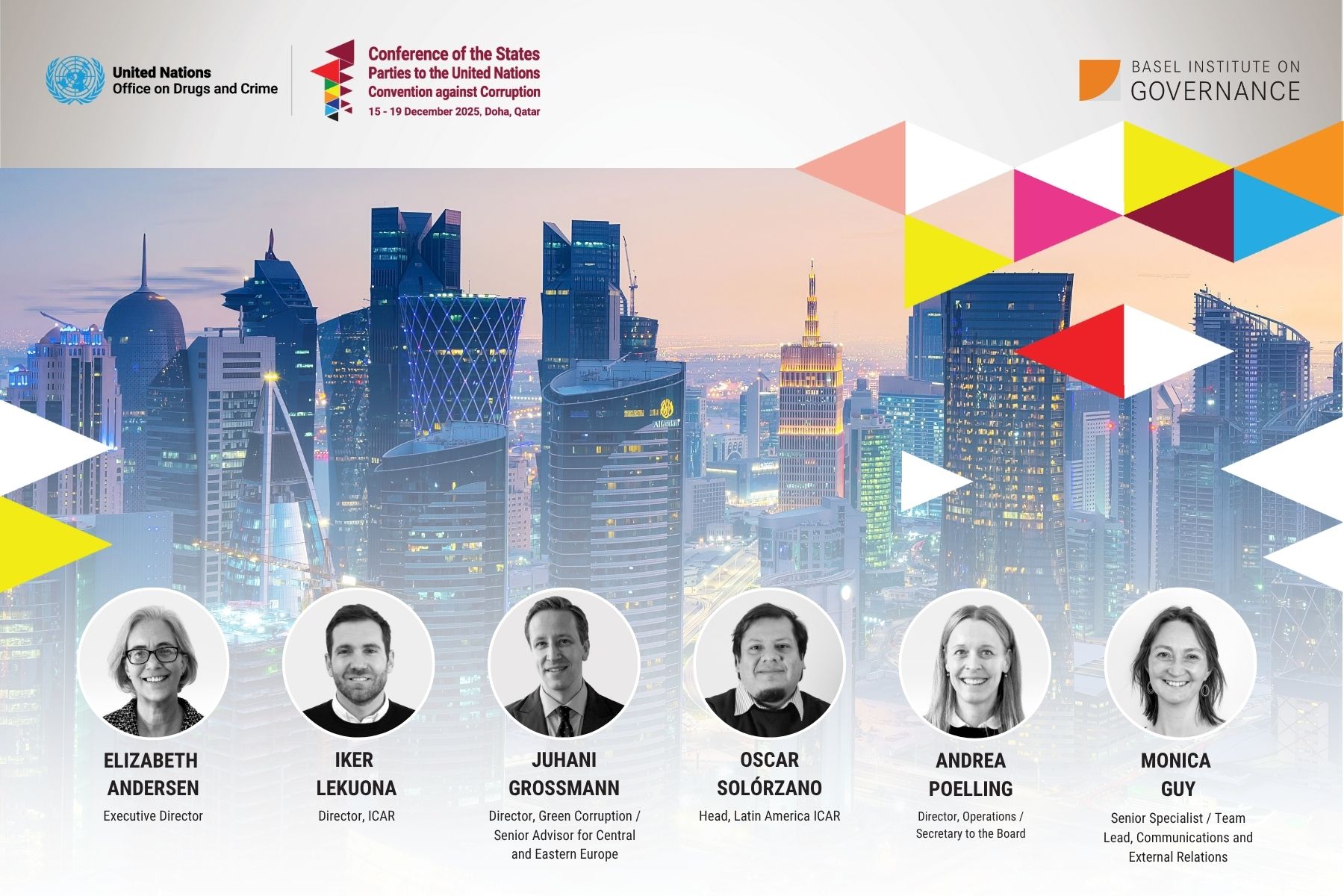La minería de oro ilegal constituye hoy uno de los principales desafíos estructurales para la gobernanza ambiental, económica y de seguridad en América Latina. Más allá de su impacto directo en los ecosistemas, esta actividad se encuentra estrechamente vinculada a redes de corrupción, economías criminales, evasión fiscal, lavado de activos y debilitamiento institucional, afectando de manera profunda la capacidad del Estado para proteger el interés público y generar valor público a partir de sus recursos naturales.
The diversity of activities to prevent and combat corruption that harms the environment is laudable. But it is far from the scale needed to tackle today's corruption and environmental challenges.
Adopted in 2019, UNCAC Resolution 8/12 – Preventing and combating corruption as it relates to crimes that have an impact on the environment – urges States Parties to the UN Convention Against Corruption (UNCAC) to prevent, investigate and prosecute corruption offences where they may be linked to crimes that have an impact on the environment.
This is a meeting of the Minerals Corruption Working Group of the Countering Environmental Corruption Practitioners Forum.
The session will focus on the Resource Matters' new report, “Nine Red Flags in the Emerging Lithium Sector in the DRC”, and will explore governance gaps, transparency challenges and corruption risks across the emerging lithium value chain.
Regional success: Over 200 professionals complete course on corruption in the timber value chain
On 23 November 2025, 222 professionals from Peru, Ecuador and Bolivia successfully completed the second edition of the virtual course “Corruption risk management in the timber value chain”. The initiative, led by the Basel Institute on Governance’s Green Corruption Programme, aims to strengthen integrity in the forestry sector and reduce the incidence of environmental crime.
El 23 de noviembre de 2025, 222 profesionales de Perú, Ecuador y Bolivia finalizaron con éxito la segunda edición del Curso–Taller virtual "Gestión de riesgos de corrupción en la cadena de valor de la madera", una iniciativa del Programa Corrupción Verde del Basel Institute on Governance que busca fortalecer la integridad en el sector forestal y reducir la incidencia de delitos ambientales.
Update: View all panel recordings on YouTube.
The Theme Day took place in a hybrid format at the 11th Conference of the States Parties to the UN Convention Against Corruption in Doha, Qatar. Corruption and crimes that affect the environment (illegal deforestation, crimes in the fisheries and minerals sectors, wildlife and waste trafficking, among others) are deeply intertwined and are mutually reinforcing.
Organizada en el marco del Día Internacional contra la Corrupción, la Semana de la Integridad 2025 reunirá a especialistas nacionales e internacionales para abordar tendencias, desafíos y enfoques contemporáneos en materia de integridad pública, prevención de la corrupción y gobernanza.
Durante tres días se desarrollarán once sesiones virtuales centradas en temas como corrupción verde, gestión de conflictos de intereses, recuperación de activos, inteligencia artificial, riesgos de corrupción y delitos contra la administración pública.
The Working Paper Saplings of hope presents an updated overview of emerging and promising prevention and enforcement actions, initiatives and measures implemented by States Parties to the UN Convention against Corruption (UNCAC) to combat corruption related to crimes that have an impact on the environment. It focuses specifically on initiatives from 2024 and 2025.
The mining sector is a backbone of many national economies. Yet recent trends including the surge in gold prices and the global competition for minerals essential to the energy transition are making the sector more vulnerable than ever to corruption. In response, a new working group aims to confront these challenges through collective action.

 <
<